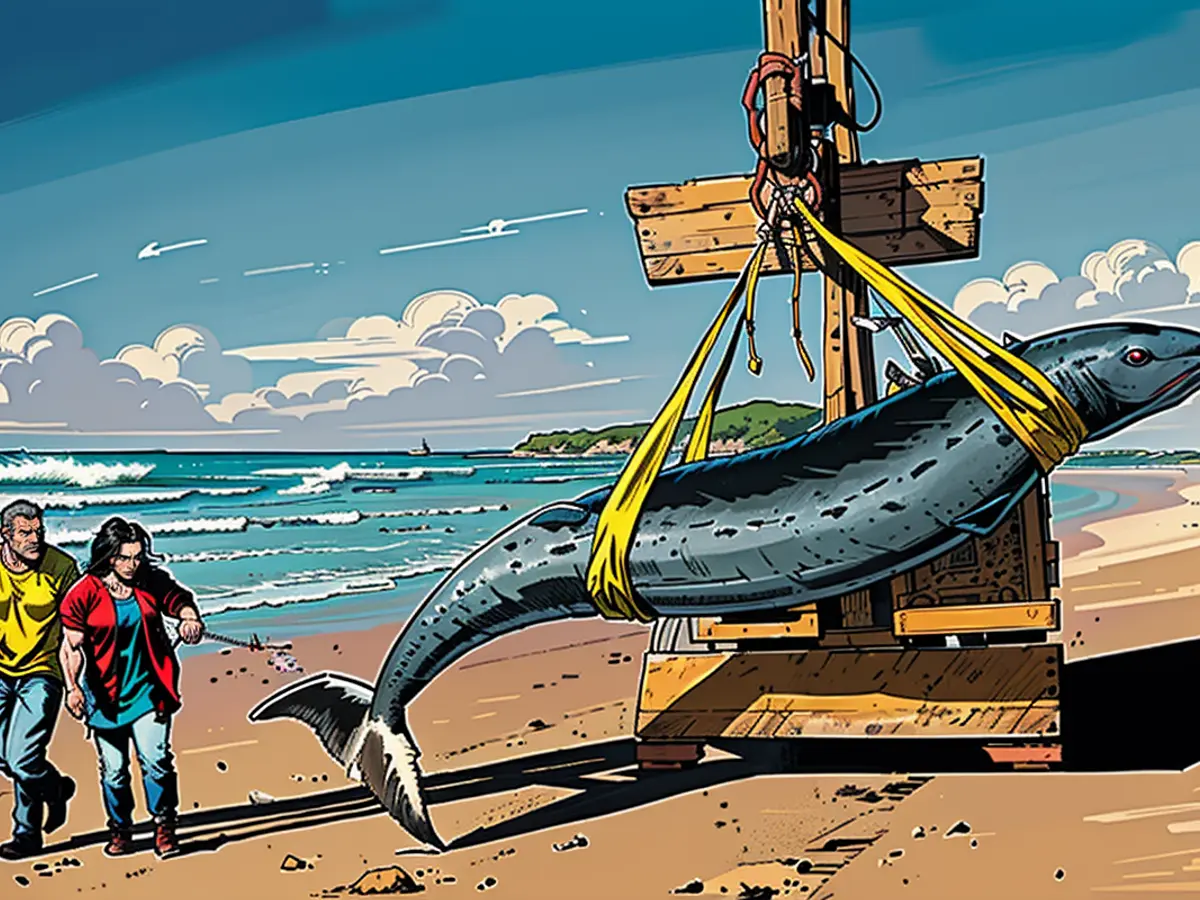An extremely rare seal on a New Zealand beach
For 150 years, Bahamonde Beaked Whales have been a mystery to science. A five-meter long whale carcass was washed up on a beach in New Zealand. These animals are extremely rare and scarcely known to science. The dead creature is to be examined.
An extremely rare and little-known whale species, one of the least known large mammal species of the modern era, has been beached in New Zealand. The carcass of the five-meter long marine mammal, discovered on July 4 near Dunedin on the South Island, is most likely that of a Bahamonde Beaked Whale, according to the local conservation authority (DOC). Fewer than a handful of specimens of this species are known to science.
"Bahamonde Beaked Whales are one of the least known large mammal species of the modern era," said DOC Operations Manager Gebe Davies. "From a scientific and conservation perspective, this is a huge thing." The recently deceased animal provides an important opportunity for necropsy and further research on the species.
Maori involvement is planned
Genetic samples have already been sent to the University of Auckland for analysis. The New Zealand Wal Tissue Bank, which manages the New Zealand whale tissue archive, is responsible for their management. The whale has since been carefully removed from the beach by a local construction company, according to DOC in a statement.
The whale is currently in a refrigerated container, to preserve its remains until the next steps are decided, it was further stated. The Maori, New Zealand's indigenous people, are also to be consulted to ensure appropriate respect is paid to the animal.
Never seen alive in the sea
The Bahamonde Beaked Whale is scientifically known as "Mesoplodon traversii". The first skeletal remains and teeth of this whale species were discovered in 1874. Since the 1800s, only six specimens have been documented worldwide, and all but one were from New Zealand - including the first two complete individuals in 2010.
The mother and calf were washed up on the North Island of New Zealand and died shortly thereafter. The animals have never been observed alive in the sea.
The examination of the deceased whale could provide valuable insights into the behavior and biology of the elusive Bahamonde Beaked Whale, which has never been observed alive in its natural habitat. The Maori, with their deep connection to nature and animals, will be consulted to ensure respectful handling of the creature. Protecting the remaining species of Bahamonde Beaked Whales and other endangered marine mammals is crucial for the conservation of New Zealand's rich marine biodiversity, which includes the protection of animal and nature habitats.







